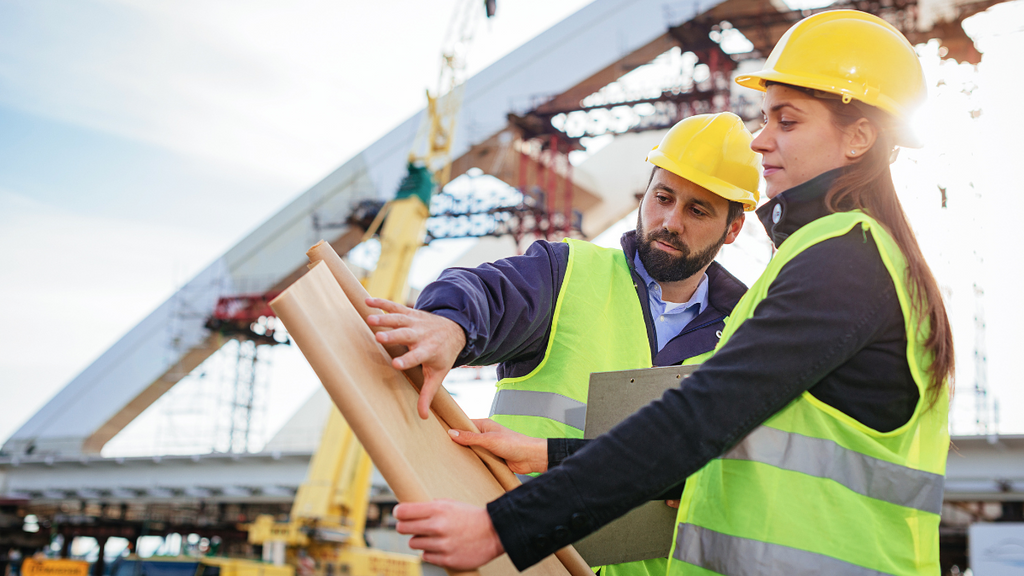Geotheta Can Be Fun For Anyone
Geotheta Can Be Fun For Anyone
Blog Article
The 8-Minute Rule for Geotheta
Table of ContentsHow Geotheta can Save You Time, Stress, and Money.Geotheta Can Be Fun For EveryoneThe Ultimate Guide To GeothetaGeotheta Can Be Fun For AnyoneTop Guidelines Of Geotheta

They conduct website examinations, gather examples, do lab examinations, and evaluate information to review the suitability of the ground for building projects - Engineer of Record. Based upon their findings, geotechnical designers offer suggestions for structure style, slope security, keeping structures, and reduction of geotechnical risks. They team up with other experts, such as designers, structural designers, and construction teams, to ensure that geotechnical considerations are incorporated into the general task style and implementation
By analyzing the behavior and properties of soil and rock, they can recognize prospective geotechnical hazards such as landslides, dirt negotiation, or slope instability. Their knowledge assists stop failures or accidents that could endanger lives and home. Right here are some detailed tasks and duties of a geotechnical engineer: Site Investigation: Geotechnical designers conduct website investigations to gather data on subsurface conditions.
They analyze the data to recognize the properties and habits of the dirt and rock, including their stamina, leaks in the structure, compaction features, and groundwater conditions. Geotechnical Evaluation and Design: Geotechnical designers evaluate the information collected during site investigations to examine the security and viability of the website for building jobs. They carry out geotechnical calculations and modeling to examine elements such as birthing capacity, settlement, incline stability, lateral earth pressures, and groundwater circulation.
Geotheta - The Facts
Structure Design: Geotechnical designers play an important function in developing structures that can securely sustain the designated framework. They evaluate the soil conditions and tons demands to figure out the appropriate structure kind, such as shallow structures (e.g., grounds), deep structures (e.g (https://forums.hostsearch.com/member.php?265240-geotheta)., heaps), or specialized methods like soil renovation. They take into consideration factors such as negotiation limitations, birthing capacity, and soil-structure interaction to create optimum foundation layouts
They assess building and construction plans, display site tasks, and conduct field evaluations to verify that the layout suggestions are complied with. If unpredicted geotechnical concerns arise, they assess the scenario and offer suggestions for removal or changes to the design. Danger Analysis and Reduction: Geotechnical engineers evaluate geotechnical hazards and threats connected with the task website, such as landslides, liquefaction, or dirt erosion.

Partnership and Interaction: Geotechnical designers work closely with various other professionals associated with a job, such as designers, architectural engineers, and building and construction teams. Reliable interaction and cooperation are vital to integrate geotechnical considerations right into the general job layout and construction procedure. Geotechnical engineers provide technological knowledge, response questions, and ensure that geotechnical requirements are satisfied.
The Ultimate Guide To Geotheta
Below are some kinds of geotechnical engineers: Foundation Engineer: Structure engineers concentrate on designing and analyzing structures for frameworks. They evaluate the soil conditions, load demands, and site features to identify one of the most appropriate foundation type and style, such as superficial structures, deep foundations, or specialized methods like heap foundations.
They examine the aspects influencing slope stability, such as dirt properties, groundwater conditions, and incline geometry, and establish methods to my website stop slope failings and mitigate risks. Quake Engineer: Earthquake designers concentrate on examining and creating structures to hold up against seismic forces. They analyze the seismic hazard of a site, assess soil liquefaction possibility, and establish seismic layout criteria to guarantee the security and resilience of frameworks throughout quakes.
They do field testing, gather samples, and analyze the accumulated information to identify the dirt buildings, geologic developments, and groundwater problems at a site. Geotechnical Instrumentation Designer: Geotechnical instrumentation engineers focus on surveillance and determining the habits of soil, rock, and frameworks. They install and maintain instrumentation systems that check elements such as dirt negotiation, groundwater degrees, slope motions, and structural variations to assess performance and offer early cautions of prospective concerns.
The Facts About Geotheta Revealed
They conduct examinations such as triaxial examinations, combination examinations, straight shear tests, and permeability tests to gather information for geotechnical evaluation and style. Geosynthetics Engineer: Geosynthetics designers concentrate on the style and application of geosynthetic materials, such as geotextiles, geogrids, and geomembranes. They utilize these products to enhance soil security, reinforce slopes, offer drainage solutions, and control disintegration.
They have a tendency to be investigatory people, which means they're intellectual, reflective, and curious. They are interested, systematic, logical, logical, and logical. A few of them are also social, suggesting they're kind, charitable, cooperative, individual, caring, helpful, understanding, sensible, and friendly. Does this seem like you? Take our cost-free career test to figure out if geotechnical designer is among your top profession suits.
In the workplace atmosphere, geotechnical designers use specialized software program devices to perform computations, develop designs, and assess data. They prepare records, testimonial task requirements, connect with clients and team members, and coordinate project activities. The workplace setting supplies a conducive atmosphere for research, evaluation, and collaboration with other specialists entailed in the task.
An Unbiased View of Geotheta
They often see job sites to perform website examinations, assess geotechnical problems, and collect data for evaluation. These brows through include taking a trip to different locations, often in remote or challenging surfaces. Geotechnical engineers may execute dirt sampling, conduct examinations, and monitor construction tasks to make sure that the geotechnical facets of the job are being implemented properly.
Geotechnical designers likewise work in specialized geotechnical labs. Geotechnical research laboratory designers function thoroughly in these atmospheres, managing screening equipment, operating instruments, and taping data.
Report this page